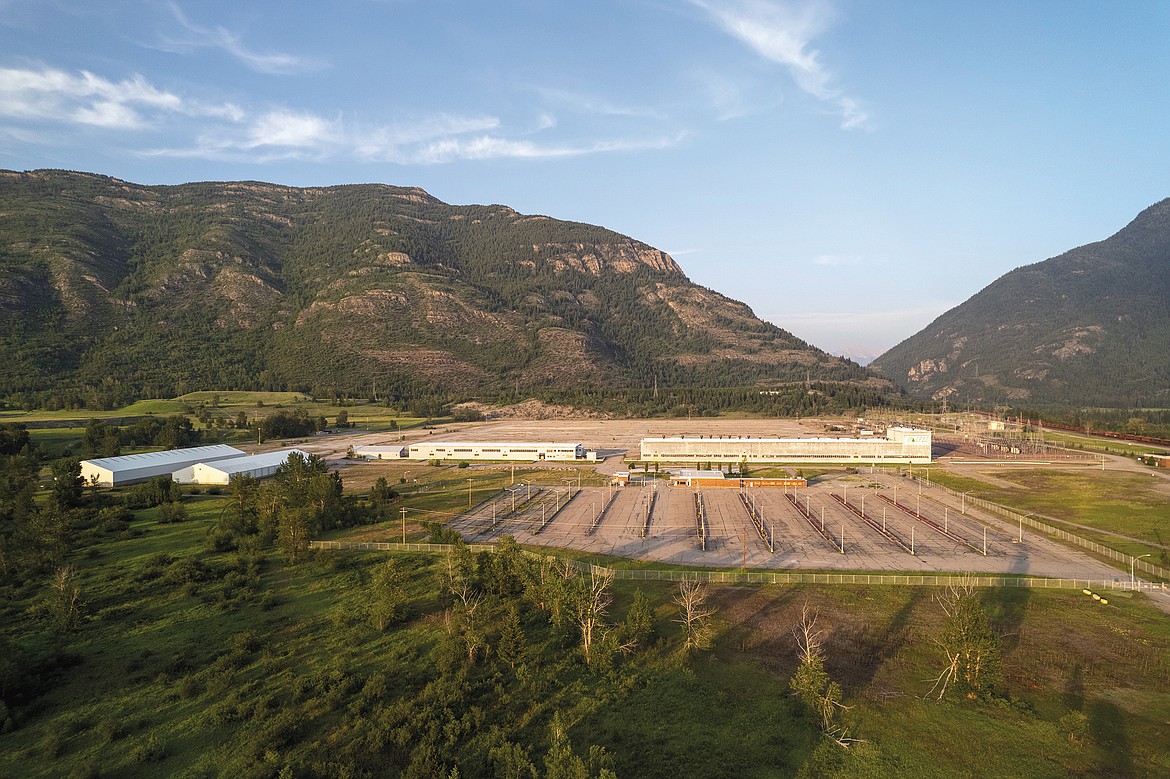Residents don’t express much confidence in CFAC cleanup plan
Members of the public didn’t express much hope for what they see as a suitable cleanup for the Columbia Falls Aluminum Co. site last week.
The small crowd was at city hall to listen to Karmen King, a scientist with Skeo Solutions. Skeo is heading up the Technical Assistance for Communities Program, which is funded under contract by the Environmental Protection Agency.
The program is designed to help communities with the technical aspects of a Superfund cleanup.
But in this case, people were more concerned about the legacy of the site, and what sort of pollution would be left behind for their children and grandchildren.
King said the site is very complicated, with “little spots and pieces” as waste from the defunct and torn down plant was buried in a variety of different landfills.
She said her greatest concerns was how water was managed at the site into the future — both the groundwater and the surface water.
“We don’t want groundwater to come in contact with the waste,” she said.
Currently, it’s doing just that in some areas of the 960-acre site, most notably the former wet scrubber sludge pond and the west landfill. There. groundwater has high levels of cyanide and fluoride.
The plan is to contain those landfills and dumps with a slurry wall of Bentonite, dug about 120-125-foot deep encompassing the two dumps. Contaminated soils at the site would be scrapped off and put into an approved landfill. The whole project has a price tag of about $57 million.
But resident Phil Matson suggested that rather than contain the two dumps, it would be better to at least dig them up and remove the waste entirely, as they are the worst offenders of the nine or so landfills on the site.
But King noted the closest approved industrial landfill is 500 miles away in Oregon. Waste would have to be hauled by truck or train and would take about four years.
A former worker at the plant recalled the wet scrubber sludge pond with plenty of barrels sunken into the water.
“It used to be a catchall for the plant,” the man mused.
Nino Berube, a former plant engineer and longtime critic of the entire cleanup process concurred, noting that someday, those drums will rust out and the contaminants inside them — whatever they may be, will be released.
“They’re going to start leaking one of these days,” he surmised.
King conceded that the site would likely end up being contaminated to one degree or another well into the future.
That’s why testing is paramount, she said.
The EPA will test the groundwater and soils at the site on a regular basis and under the law, is required to complete a five-year review of a cleanup plan.
She suggested that when folks comment on the plan, that they request a “full suite” of testing be done on water and other samples, not just cyanide and fluoride, which are common pollutants at aluminum plants.
And that brought up another point — while King can suggest ways to make the cleanup better, she can’t, under the law, comment directly to the EPA, she has to suggest tactics to the public and then they have to comment.
First and foremost is controlling surface and groundwater on the site, she said.
“Water is our enemy on the site,” she said.
She said the proposed action needed a better water management plan to keep contaminants from running off the site both into the Flathead River and area wells.
It is important to note that currently, cyanide and fluoride are found at very low levels in wells near the river and no contamination has been found in home water wells nearby.
That didn’t make people sit any easier, however.
“I want that stuff out of here,” said former Columbia Falls Mayor Gary Hall.
But the EPA hasn’t been moving waste out of other aluminum plant Superfund sites across the West and CFAC doesn’t appear to be much different. In fact, other aluminum plants merely treat the water, with no slurry containment.
If the slurry containment doesn’t work at CFAC, it would then treat the water as well.
But this all leads to a site that’s an industrial waste site in perpetuity.
And no one seemed much happy about that.
Folks can read the entire proposed action at: https://cumulis.epa.gov/supercpad/cursites/csitinfo.cfm?id=0800392
Folks can comment by email to with the subject of CFAC to Missy Haniewicz at haniewicz.melissa.m@epa.gov or by standard mail to Missy Haniewicz, U.S. EPA, 1595 Wynkoop Street, Denver, Colorado, 80202.


